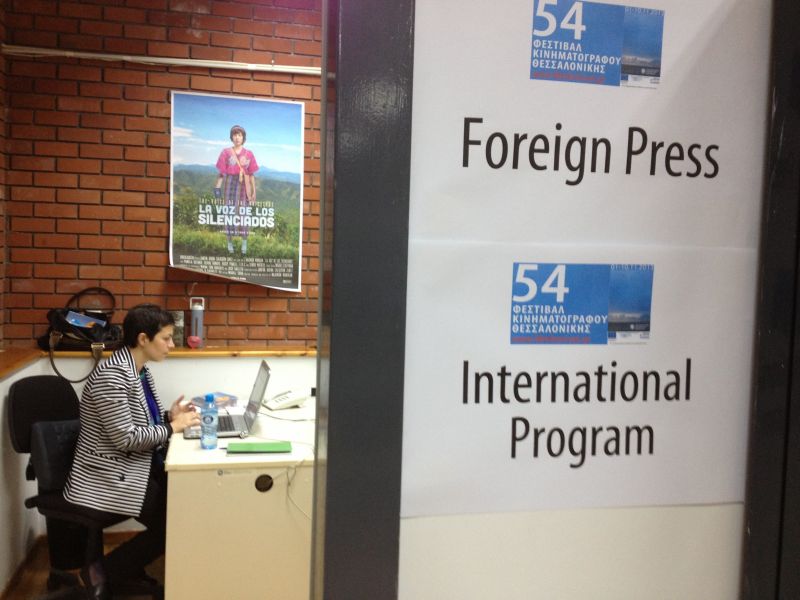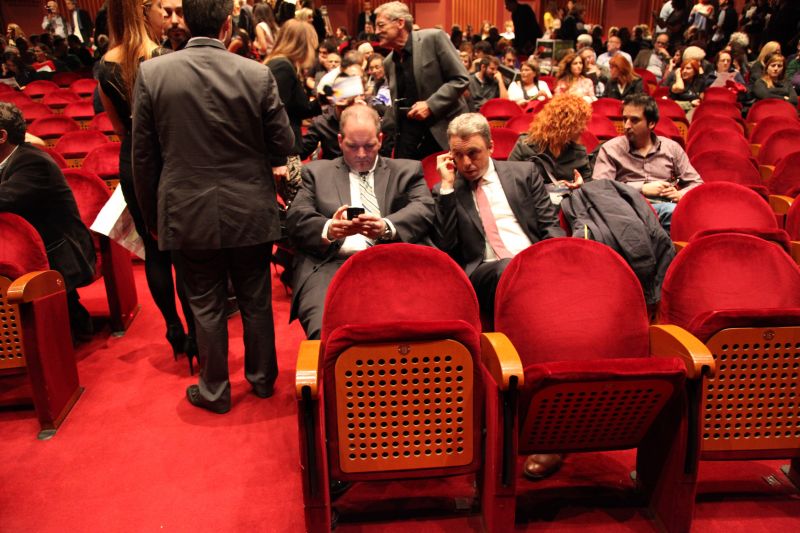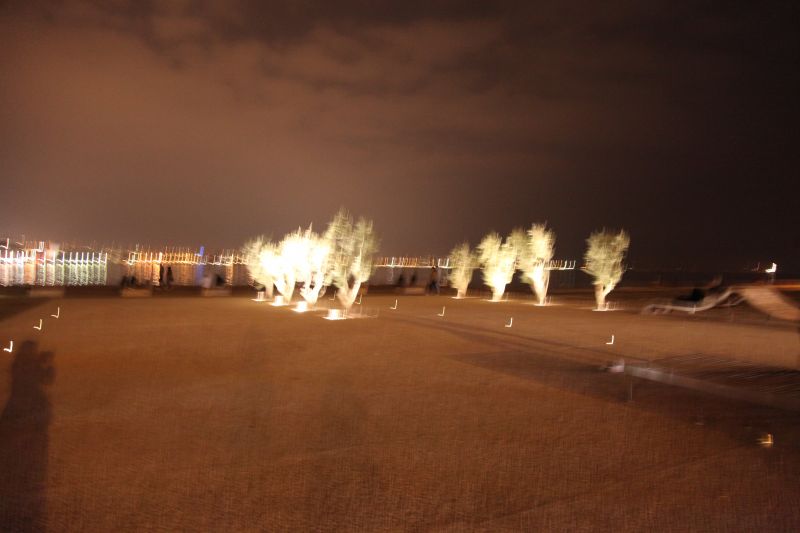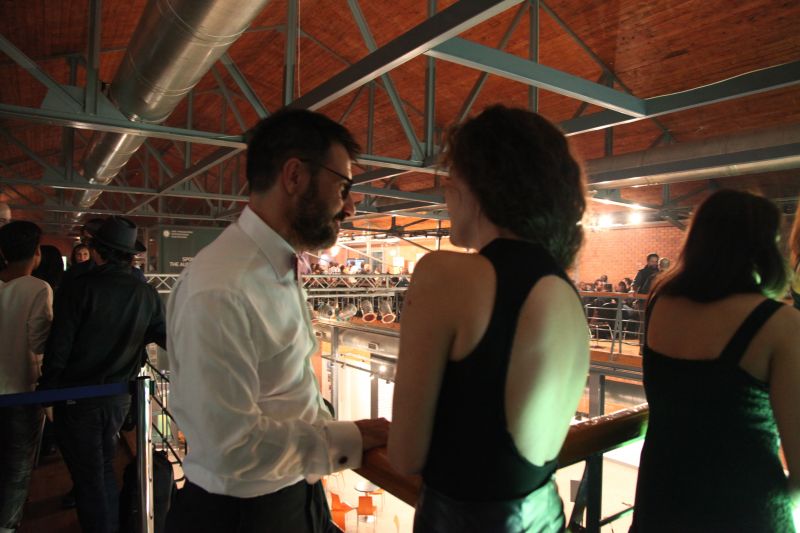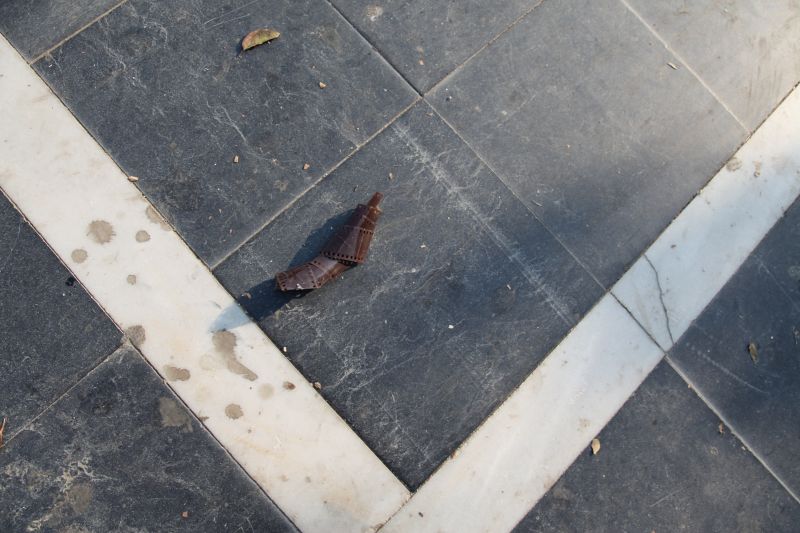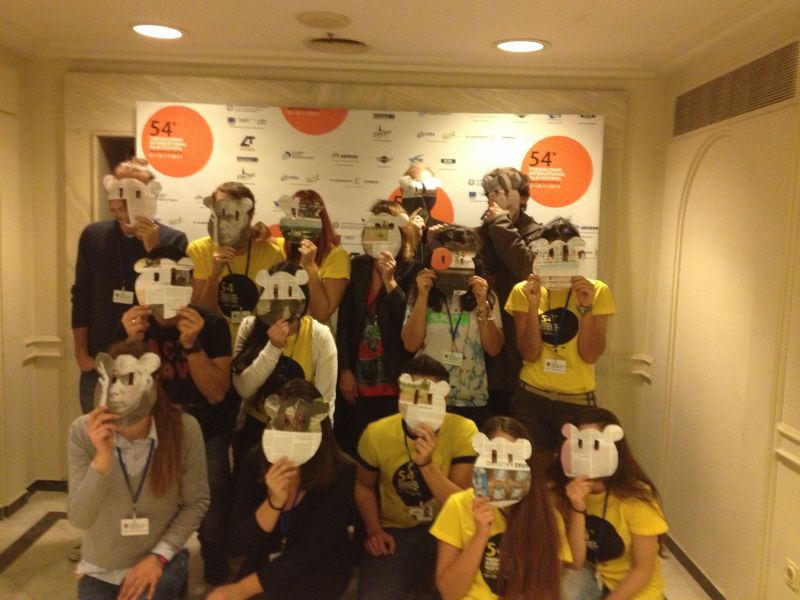|
|
||
|
Pro Tools
FILMFESTIVALS | 24/7 world wide coverageWelcome ! Enjoy the best of both worlds: Film & Festival News, exploring the best of the film festivals community. Launched in 1995, relentlessly connecting films to festivals, documenting and promoting festivals worldwide. Working on an upgrade soon. For collaboration, editorial contributions, or publicity, please send us an email here. User login |
Interview with director Cristian Mungiu
Interview with director Cristian Mungiu
Romanian director Cristian Mungiu is a prolific filmmaker with each of his feature films having held premiers at the Cannes Film Festival. His first feature ‘Occident’ (2002) screened in the Directors Fortnight at Cannes. He later won the Palme d’Or for his film ‘Four Months, Three Weeks and Two Days’ (2007). His most recent film ‘Beyond the Hills’ (2012) was nominated for the Palme d’Or and won awards for Best Screenplay and Best Actress at the 2012 Cannes Film Festival. Cristian recently attended the 53rd Thessaloniki Film Festival where he was honored for his beloved body of work. I spoke with Cristian during TIFF about his films, politics and religion.
ME: Can you speak about your latest film ‘Beyond the Hills’? CRISTIAN: It’s about love if you ask me. It’s about different ways of understanding love and what people are asked to do in the name of love. It’s about a lot of things. The film is about whatever you can’t place in the five lines describing the film in a catalogue. ME: Were you inspired by a personal story when you wrote this film? CRISTIAN: I think there is always something personal in cinema because it regards something that concerns me in a specific moment, not necessarily in my career but in my life. It has something to do with that moment. Ten years ago I just discovered by looking around that no more of my friends were still there. They were all leaving so I was concerned about this attitude and reality in Romania. And four months later I became a father and all of a sudden that was something that concerned me, this idea of motherhood, the child and conception and all this. So I got back to tell this story that I knew for a long while. And now I’m really concerned about education and what we need to tell the others. So, it’s a preoccupation for something I don’t think really works in society. It’s more the desire of also adding this use for film, the use of signaling to people around you that there’s something that doesn’t really go well, eventually to people which are close to you like your own society but not only. I think that ‘Beyond the Hills’ speaks about this social indifference and lack of empathy that we have for the other today. When you place a story in a society that claims to be very religious this is not very logical so this is one of the reasons for which I thought it would be important to speak about. ME: This seems to be one of the underlying themes in much of the world cinema I’m seeing recently, this paradox between traditionalism and modern detachment and indifference. Despite all the communication technology we have today we seem to have an increase of alienation and isolation. CRISTIAN: I can agree with you because it’s just a false feeling that all these tools help us communicate. Actually they don’t because communication is about having the patience to listen to the other, and we don’t really have this patience anymore. So one of the reasons I also wanted to make this film was like a pledge for tolerance. It’s important to take the time and listen to the other before judging him because now we became so rushed in having an opinion about everything because we lost patience and in a case like this it’s not good to have an opinion without understanding how things went. Especially when you place a story like this one in a society that claims to be very religious, like the Romanian society. You start asking some questions… So what are these values associated with the necessity of cherishing for the other, of helping the other? Associating religion, how do these people assimilate these values since they are so selfish? And the only explanation I have is that they don’t go very deep down into the values of Christianity. Actually loads of people stay on the surface and they know a lot about tradition, rituals, habits, but this is not the benefit of becoming a religious person. Therefore what I noticed is there are things that coexist in people’s minds but they don’t make these differences. The film speaks at the same time about churches as an institution, about religion as an ideology, about faith, which can be personal and about superstitions. And all these mingle in society and sometimes when you mix these things and you don’t make a difference then a tragedy like this can happen. ME: I think there is a lot of chatter out there and too much exterior looking and not inward looking. Look at US the elections for instance. How can you mix politics with religion?.. And yet it happens everywhere all the time. CRISTIAN: In politics, people claim to be very religious in all these political debates in US because they know that this is what voters expect them to do, but at the same time I think it’s very strange in a political debate to invoke arguments coming from the Bible. It’s very strange. We shouldn’t mix things up. This is also one of the aspects for me here. In my film, it’s a matter of competence you know for the rational world they should stick to rational solutions. So, if you get this girl to a hospital and talk to a doctor, this physician should only give you a rational solution, not also speak about the necessity of praying for her soul because then he becomes confusing. He confuses people and they will believe they have the authority of making decisions for her because he said also that you know ‘prayers do help’. And on the other side when they try to live in this world of general values and make this complete list of sins. You know, its good to be organized but its not about this. Its not about accounting. And this is why it’s so difficult. Another thing that really concerns me in a case like this its very difficult to say who was guilty and to which extent. Pretty much everybody was guilty, if not for something else, but for not doing anything. This kind of passivity and inactivity. ME: Your film ‘Four Months, Three Weeks, Two Days’ is about the subject of abortion. As you know, this is a big debate still in the US, especially around election time. Can you speak about your feelings on this matter? CRISTIAN: Well, that’s a bit difficult but it’s not an easy answer. You know, I was trying to place this issue in that specific situation in ‘Four Months’ because it shows you that you can’t have always the right solution for all situations in all the historical periods forever. It’s not right. That was placed in a period when people didn’t have the means to raise their children. People didn’t have the liberty to make decisions. But for example I don’t agree with women using abortion as a tool of contraception today in countries when they can use a lot of different methods. It belongs to different social contexts but it’s a matter of education as well. For example with us, because we had this period of 25 years when abortions were forbidden and they didn’t have any other solution, they don’t know much about anything else. But all this time after the fall of communism you would expect a different a little bit more social education. ME: Well, are you happy to be here in Thessaloniki? CRISTIAN: Well, I was here ten years ago and its good to revisit places that appreciated you and loved you. For a filmmaker you want to give back to the audiences. And I feel like it’s a little bit home here. There’s a reaction from the audience here, which is wonderful. It’s not far from home but you never know how the audience reacts. I think I have a greater crowd coming to watch my films here than I would have in Bucharest. I would not have 700 people come to see my films in Bucharest as I have here.
Interview by Vanessa McMahon
24.11.2012 | Thessaloniki International Film Festival's blog Cat. : Bucharest Cannes Cannes Christian Mungiu Cristian Mungiu Entertainment Entertainment Interview with director Cristian Mungiu Mixture Or Punctuation Romania the 2012 Cannes Film Festival the 53rd Thessaloniki Film Festival the 53rd Thessaloniki Film Festival the Cannes Film Festival Vanessa McMahon Interviews
|
LinksThe Bulletin Board > The Bulletin Board Blog Following News Interview with IFTA Chairman (AFM)
Interview with Cannes Marche du Film Director
Filmfestivals.com dailies live coverage from > Live from India
Useful links for the indies: > Big files transfer
+ SUBSCRIBE to the weekly Newsletter Deals+ Special offers and discounts from filmfestivals.com Selected fun offers
> Bonus Casino
User imagesAbout Thessaloniki International Film Festival Industry: CROSSROADS Co-Production Forum,AGORA, script-development BALKAN FUND. Competition for directors with 1st or 2nd films. Golden Alexander Prize 37.000 € Coverage by Vanessa McMahon, Laurie Gordon View my profile Send me a message The EditorUser contributions |





















